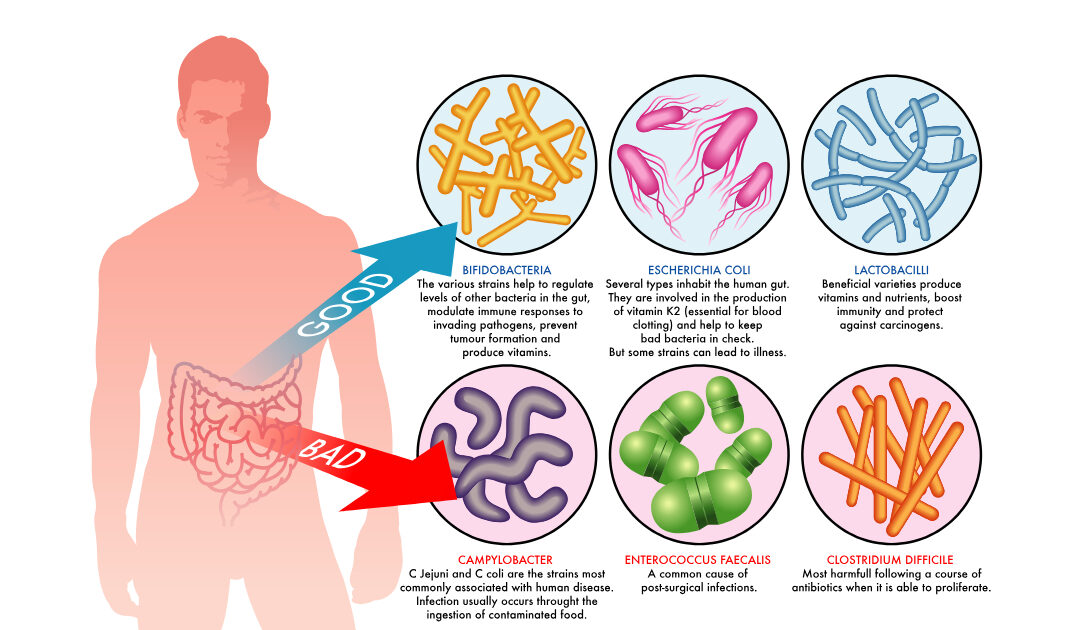Do you know what common bacteria mean. Here’s a rundown.
Bifidobacteria – helps to regulate the levels of other bacteria in the gut, modulate immune responses to invading pathogens, prevent tumour formation and produce vitamins.
Escherichia Coli – Involved in the production of vitamin K2, essential for blood clotting, and helsp to keep bad baceterian in check. Some strains can lead to illness.
Lactobacilli – Produces vitamins and nutrients, boosts immunity and protects against carcinogens. A “good bacteria” that fights the “bad bacteria” that causes disease.
Campylobacter – C Jejuni and C Coli are the strains most commonly associated with human disease. Infection usually occurs through the ingestion of contaminated food.
Enterococcus Faecaus- A common cause of pos-surgical infections. Many antibiotics no longer work against this infection.
Clostridium Difficile – Most harmful following a course of antibiotics when it is able to proliferate; causes diarrhoea and bowel inflammation.


